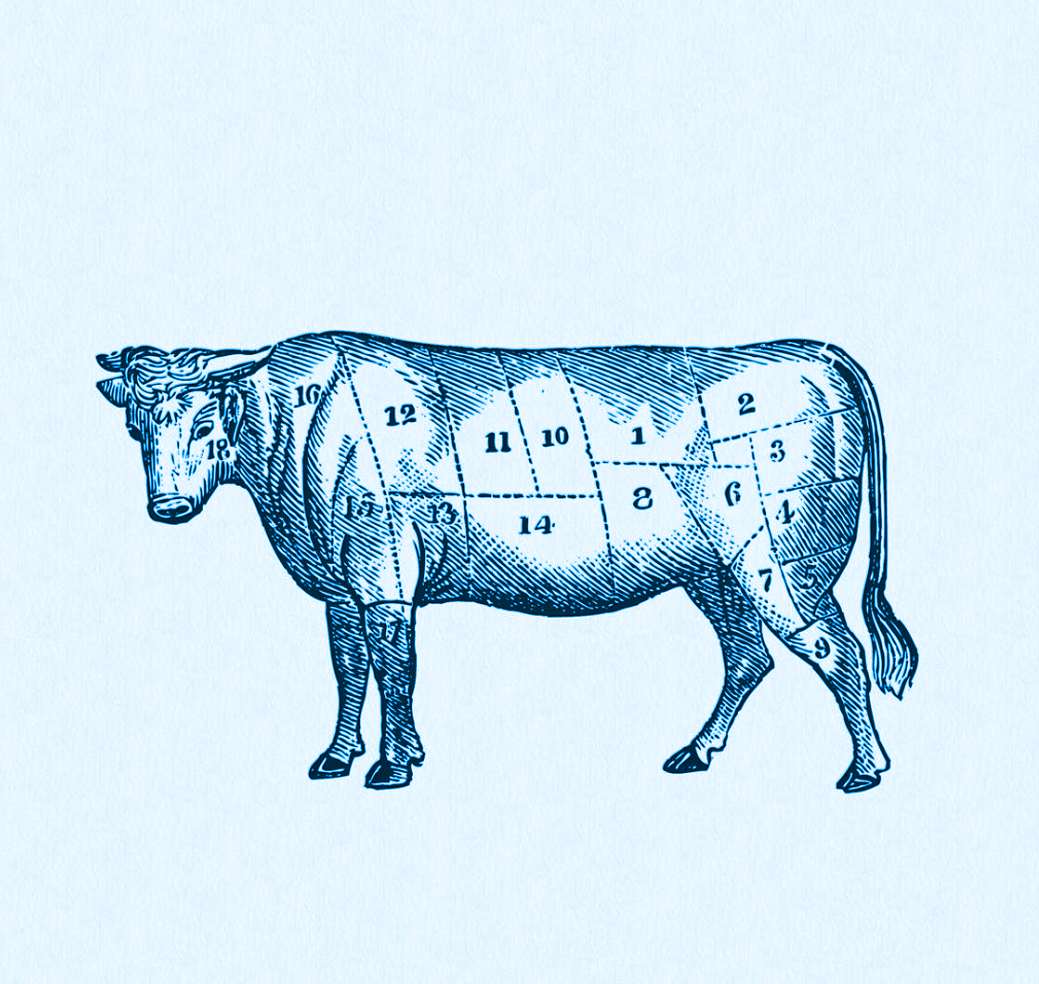Why Grass-Fed Beef is Better
Posted by Catherine Woodlock

Perhaps you have heard some of the buzz surrounding grass-fed beef. Among the plethora of reasons why grass-fed beef is an incredible nutrient resource, there are some real gems in this superfood that can benefit everyone’s health. In honour of Movember we want to highlight the different nutritional aspects that benefit our wonderful men.
2 reasons Omega-3 fatty acids are good for us:
Grass-fed beef contains between 2 & 5 times more omega-3 fatty acids than grain-fed beef. (1)
- Omega-3 fatty acids can protect the body from various inflammatory disorders.
- Omega-3 fatty acids can improve sperm parameters, including motility and concentration.
Chronic inflammation is something that we all want to minimize. However, some inflammatory diseases are more prevalent among men, such as heart disease and cancer. Depression, another prevalent men’s health issue, is also associated with high amounts of inflammation.
2 reasons antioxidants support men’s health:
Grass-fed beef contains significantly higher amounts of beta-carotenoids, vitamin E, CLA, glutathione, superoxide dismutase and catalase – all potent antioxidants! (1)
- Antioxidants protect the body’s cells against damage from free radicals by enhancing immune function.
- Antioxidants improve sperm concentration, morphology, motility and DNA integrity.
The protection against free radicals prevents the development of cancer and also helps to prevent or delay coronary heart disease. (1)
Sperm is a biomarker for overall health and longevity as well. A study between 1963 and 2001 performed on 51,543 men showed that higher sperm counts were correlated with significantly lower mortality rates. (2)
Why zinc is an essential trace element for men:
All beef contains a high amount of zinc, however, grass-fed cattle contains a higher level of zinc than grain-fed cattle, especially if raised with organic methods. (3)
- Zinc balances testosterone, improving prostate and sexual health.
- Zinc functions as an antibacterial agent in men’s urea system.
- Zinc has a positive effect on spermatogenesis and improves the physiology of sperm.
A deficiency of zinc has been shown to impede spermatogenesis and is a direct reason for sperm abnormalities and poor sperm testosterone concentration. While zinc improves men’s fertility parameters, it also helps to improve overall reproductive health, prostate health, sexual health and the hormonal balance of men. (3)
Grass-fed beef has better nutrient retention
Due to its high concentration of beta-carotenoids, vitamin E and antioxidants, grass fed beef has a slower rate of degradation. This means that it browns much slower than grain-fed beef!
It is even protected against the nutrient degradation that occurs when beef is cooked at high temperatures such as grilling or frying! (4)
Want to Learn More?
On December 1st, we are teaming up with Chef Blair Lebsack at Edmonton’s popular restaurant RGE RD, to co-host a Mindful Eating for Men Cooking Class. Come and learn how easy it is to eat healthily and mindfully. Chef Blair will demonstrate how to transform beautiful raw ingredients into a delectably healthy meal while we enlighten you on the health benefits of it all. Then you get to taste it, and take a Range Road recipe home. All proceeds will go to Movember.
Check our events page for more info or to register call 587-200-5590.
Space is limited!
- Daley, Cynthia al. “A review of fatty acid profiles and antioxidant content in grass-fed and grain-fed beef.” Nutrition journal vol. 9 10. 10 Mar. 2010, doi: 10.1186/1475-2891-9-10 https://www.ncbi.nlm.nih.gov/pmc/articles/PMC2846864/
- Harvard Health Publishing. “Sperm Count May Be Good Predictor of Men’s Overall Health, from Harvard Men’s Health Watch.” Harvard Health https://www.health.harvard.edu/press_releases/sperm-count-may-be-good-predictor-of-mens-overall-health
- Fallah, Ali et al. “Zinc is and Essential Element for Male Fertility: A Review of Zn Roles in Men’s Health, zgermination, Sperm Quality and Fertilization.” Journal of reproduction & infertility vol. 19,2 (2019): 69-81 https://www.ncbi.nlm.nih.gov/pmc/articles/PMC6010824/
- Domaradzki, Poitr et al. “Evaluation of the Mineral Concentration in Beef from Polish Native Cattle.” Biological trace element research vol. 171,2 (2016): 328-332. doi:10.1007/s12011-015-0549-3 https://www.ncbi.nlm.nih.gov/pmc/articles/PMC4856721/
